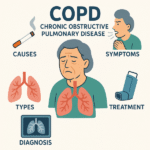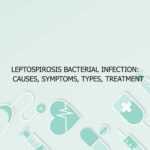Now Reading: First 72 Hours of Pregnancy Symptoms
- 01
First 72 Hours of Pregnancy Symptoms
First 72 Hours of Pregnancy Symptoms
Pregnancy is a miraculous process that begins at the moment of conception, when a sperm fertilizes an egg. The first 72 hours, or the initial three days after conception, are among the most dynamic and biologically complex periods of early human development. Although it may seem too soon to experience pregnancy symptoms, subtle physiological processes begin almost instantly after fertilization. These early events, while not immediately obvious to most women, set the stage for the intricate journey that follows over the next nine months.
Conception typically occurs in the fallopian tube after ovulation, and within hours, the fertilized egg—now a zygote—begins its journey toward the uterus while undergoing rapid cellular division. During these first 72 hours, the embryo is just beginning to form, and the body starts releasing various hormones that help support implantation and early development. For women who are extremely attuned to their bodies—especially those trying to conceive—there may be very early signs that something is happening. However, most of these signs are subtle, and it’s important to remember that they are not definitive proof of pregnancy. They may include minor physical, emotional, or biological changes that reflect the beginning of the hormonal cascade triggered by conception.
Let’s dive deeper into what actually happens during the first 72 hours of pregnancy and what symptoms—if any—may be perceived by women during this brief but critical time window.
Table: Possible Symptoms in the First 72 Hours of Pregnancy
| Symptom/Sign | Description | Possible Cause |
|---|---|---|
| Mild Cramping | Light abdominal twinges or sensations | Hormonal changes or ovulation-related processes |
| Slight Nausea | Feeling queasy, especially in the morning or after eating | Initial hormonal sensitivity, though rare this early |
| Cervical Mucus Changes | Noticed increase or shift in mucus consistency | Preparation of the body for implantation |
| Fatigue or Tiredness | Feeling unusually exhausted | Rising progesterone levels post-ovulation |
| Bloating | Mild digestive bloating or gas | Hormonal slowing of digestion |
| Heightened Smell | Increased sensitivity to odors | Estrogen and hormonal fluctuations |
| Breast Sensitivity | Slight soreness or tingling in breasts | Early hormone signaling |
| Metallic Taste | Strange taste in mouth sometimes described as “metallic” | Hormonal influence on taste receptors |
| Mood Swings | Emotional fluctuations, feeling unusually sensitive | Hormonal impact on brain chemistry |
| Cervical Position | May rise or feel softer (detected in fertility tracking) | Subtle changes in reproductive organs |
What’s Happening in the Body During the First 72 Hours
Within the first 12 to 24 hours after ovulation, if sperm is present in the fallopian tube, fertilization occurs. The sperm penetrates the outer layer of the egg, and the two nuclei fuse to form a zygote—a single-cell organism that carries the full genetic makeup of the future baby. This is the true beginning of pregnancy, even though there is no visible or testable evidence at this point. The zygote begins to divide rapidly through a process called mitosis, forming a ball of cells known as a morula.
By 48 hours, the cells continue multiplying, and the morula moves down the fallopian tube toward the uterus. By the 72-hour mark, the ball of cells begins to form a structure called a blastocyst, which is the stage that will eventually implant into the uterine lining. During these three days, a woman’s body also begins producing small amounts of hormones such as progesterone, which thickens the uterine lining in preparation for implantation. Estrogen and hCG (human chorionic gonadotropin) production may also initiate at very low levels, although hCG won’t reach detectable levels until after implantation—typically between 6 to 10 days after ovulation.
Despite the fact that implantation hasn’t occurred yet, some women report physical sensations that they associate with very early pregnancy. While science hasn’t definitively proven that these symptoms are reliable, anecdotal evidence suggests that for some women, the body’s preparation can bring about subtle signs that conception has taken place.
Early Sensory and Emotional Shifts
One of the earliest clues may come not from the body’s reproductive organs but from the senses. A heightened sense of smell is sometimes reported in women just a few days after ovulation. This can be due to rising estrogen levels, which are known to affect the olfactory receptors in the brain. Similarly, some women report a strange or metallic taste in their mouth—a condition known as dysgeusia. These unusual sensations may cause women to feel “off,” even before they can attribute it to a potential pregnancy.
In terms of emotional changes, hormone fluctuations—especially involving progesterone—can make a woman feel more emotional, sensitive, or moody. These mood shifts may resemble PMS but could be perceived differently by women who are attuned to subtle variations in their emotional state. It’s not unusual for women to cry easily, feel a wave of anxiety, or experience irritability during the first 72 hours post-conception.
Gastrointestinal and Physical Sensations
Even before implantation, the digestive system may begin responding to hormonal changes. Women might notice bloating, gassiness, or a sense of fullness in the lower abdomen. These sensations are typically mild but can be perceived by women familiar with their menstrual cycle patterns. The reason for these changes lies in the relaxing effect that progesterone has on the gastrointestinal tract. The hormone slows digestion slightly, leading to increased gas and bloating.
Additionally, some women experience mild cramping, described as fluttery or tugging sensations in the lower belly. These are often mistaken for ovulatory pain or PMS but could be related to hormonal signaling preparing the uterus. These cramps do not indicate implantation at this point but might be a result of the body responding to early hormone fluctuations.
Breast and Cervical Changes
Breast changes are another commonly reported early sign, although they may not be as prominent in the first 72 hours. Some women experience tingling, soreness, or slight swelling due to rising progesterone and estrogen levels. These sensations may be more noticeable in women who are especially sensitive to hormonal shifts or who monitor breast changes throughout their cycles.
Changes in cervical mucus and position can also serve as early clues. Fertile cervical mucus usually decreases after ovulation, but in some cases, women report that it becomes creamy or sticky again within the first 72 hours post-fertilization. The cervix may also rise and soften slightly. While these changes are subtle and often only noticed by women tracking their fertility closely, they can suggest that the body is beginning its transformation to support pregnancy.
Can Pregnancy Be Confirmed Within 72 Hours?
Despite the hormonal changes beginning within hours of fertilization, no pregnancy test—either blood or urine—can confirm pregnancy within the first 72 hours. This is because hCG, the hormone detected by pregnancy tests, only begins to rise after the blastocyst implants into the uterine wall. This usually happens between 6 to 10 days post-ovulation, meaning that testing within the first three days is too early for a positive result. At this point, any perceived symptoms remain speculative, and women are advised to wait until closer to their missed period before testing.
That said, the earliest sensations some women experience can serve as internal signals. While not definitive, they can prompt lifestyle modifications such as starting prenatal vitamins, avoiding alcohol and caffeine, and ensuring rest and hydration—all of which support a healthy early pregnancy environment.
Frequently Asked Questions (FAQs)
Can symptoms appear within the first 72 hours after conception?
Yes, though rare, some women report subtle changes within 72 hours post-conception. These symptoms are primarily due to hormonal fluctuations, especially increases in progesterone and estrogen. While implantation hasn’t occurred yet, the body may already begin adapting to support a potential pregnancy. Symptoms like fatigue, mild cramping, breast sensitivity, changes in cervical mucus, and heightened smell may be experienced. However, it’s important to remember that many of these signs overlap with PMS and ovulation, so they are not definitive. Because hCG has not yet been produced in detectable amounts, no pregnancy test can confirm a pregnancy within this short timeframe. Women who are highly attuned to their cycles may perceive these subtle changes, but they should be viewed with cautious optimism rather than certainty.
Why do some women feel different just a few days after conceiving?
Some women report feeling “off” or different within days of conception. This may stem from an early rise in progesterone, a hormone that impacts mood, body temperature, digestion, and fatigue. Additionally, estrogen levels may cause changes in smell and taste, while emotional shifts may be triggered by increased sensitivity to hormonal changes. These signs are often subjective, but women trying to conceive may be more vigilant in observing their body, picking up on changes that might otherwise go unnoticed. There is also a psychological aspect—hope, anxiety, and heightened awareness may contribute to these sensations. While feeling different early on is possible, only time and testing can confirm pregnancy.
Is it possible to have implantation within 72 hours of conception?
No, implantation typically does not occur within 72 hours of conception. After fertilization, the zygote travels through the fallopian tube and undergoes cell division. It usually reaches the uterus and begins implantation between 6 to 10 days after ovulation. Therefore, implantation bleeding or symptoms directly related to it are unlikely within the first three days. Any signs experienced during this time, such as cramping or light spotting, are more likely linked to ovulation or early hormonal shifts rather than actual implantation. Waiting until after this window to track symptoms is more informative for determining pregnancy progression.
What does cervical mucus look like in the first 72 hours of pregnancy?
In the immediate post-ovulation phase, cervical mucus typically changes from egg-white texture to a creamier, stickier consistency. In some cases, women may notice that cervical mucus becomes more abundant or stays consistently creamy for a few days after ovulation, which can be an early indicator of conception. This change is driven by progesterone, which also thickens the cervical mucus to create a protective barrier for the uterus. However, cervical mucus patterns vary between individuals and even from cycle to cycle, so it’s best viewed in combination with other signs. Clear, odorless mucus in small amounts is usually normal and may indicate a healthy, transitioning hormonal state.
Why do some women experience mild cramping right after conception?
Mild cramping within the first few days after conception is typically due to hormonal shifts rather than physical implantation. As progesterone increases, it can cause relaxation of the uterine muscles and influence digestive activity, leading to sensations that mimic menstrual cramping. Some women describe it as a pulling or fluttering feeling in the lower abdomen. This can also be influenced by increased blood flow to the pelvic region. These cramps should not be severe or accompanied by heavy bleeding. If so, it’s important to seek medical advice. In most cases, early cramping is harmless and resolves within a few days.
Can you detect pregnancy hormones within 72 hours?
Not reliably. While the body begins producing certain hormones like progesterone and estrogen post-ovulation, the pregnancy-specific hormone hCG does not reach detectable levels until after implantation. Blood tests may sometimes pick up trace amounts of hCG slightly earlier than urine tests, but even then, it’s usually no sooner than 6–8 days post-conception. Within the first 72 hours, it’s too early to test for or confirm pregnancy using any standard diagnostic method. Instead, focusing on supportive habits such as nutrition, rest, and hydration can help prepare the body for healthy implantation.
Does bloating happen right after fertilization?
Yes, it’s possible to experience bloating shortly after fertilization. Rising progesterone levels slow digestion and lead to gas retention, resulting in a feeling of fullness or abdominal pressure. This is more of a hormonal response than a structural one since the embryo is still traveling through the fallopian tube and hasn’t yet implanted. The bloating may resemble PMS symptoms and is often temporary. Drinking water, avoiding gas-producing foods, and light exercise can help alleviate this early discomfort.
Is breast tenderness a sign of pregnancy within 3 days of conception?
It can be, but it’s not conclusive. Some women notice early changes in breast sensitivity as progesterone and estrogen levels begin to shift. This tenderness may feel like soreness, fullness, or tingling. These sensations are often similar to those experienced before menstruation and can be mistaken for PMS. While breast changes can begin early, they are more commonly noticeable after implantation. If breast discomfort persists and is accompanied by other symptoms, it may indicate early pregnancy, but a test closer to a missed period is needed for confirmation.
Can I feel implantation pain within the first 72 hours?
No, implantation pain does not typically occur within the first 72 hours. Implantation usually begins around day 6 to 10 post-ovulation. Any pain or discomfort felt within three days of conception is likely due to ovulatory processes, hormonal changes, or digestive issues. Implantation pain, when it occurs, is often described as a mild, localized twinge or cramp that lasts a few minutes to a few hours. If you are feeling consistent or severe pain, it is advisable to consult a healthcare provider to rule out other causes.
Should I change my lifestyle if I think I’m pregnant at 72 hours?
If you suspect you may be pregnant, even within 72 hours, it’s wise to begin adopting healthy habits. While it’s too early for confirmation, the fertilized egg is rapidly developing, and your body is beginning to adjust. Starting prenatal vitamins, avoiding alcohol, limiting caffeine, getting adequate sleep, and eating a balanced diet can lay the foundation for a healthy pregnancy. These proactive steps are beneficial regardless of whether conception has occurred and may improve outcomes once implantation happens. While waiting for confirmation, focusing on self-care is both safe and encouraged









